In light of World Mental Health Day last week, I have put together this blog to talk about the common struggles that many PhD students and graduate students face on a daily basis. Frighteningly, it has been found that 1 in 3 PhD students are more likely to have or develop a common psychiatric disorder, especially depression. 50% of PhD students will experience psychological distress.1
I can only speak from my experience as a PhD in Biology here in Maynooth University, however I believe that a surprising amount of your post-grad experience depends on factors completely unrelated to your studies. For example: Your support network at home or amongst friends; Bad weather; Family drama; Bereavements; The quality/strength of a cup of tea; Relationship drama; Illnesses; Whether you’ve had lunch that day…and so on. It’s hard, sometimes impossible, to keep motivated when all of this is going on.
In addition, your supervisor, lab mates, fellow post-grads, your funding body (if you have one), staff in the Department and the subject of your thesis will greatly influence the environment and atmosphere of your PhD studies.
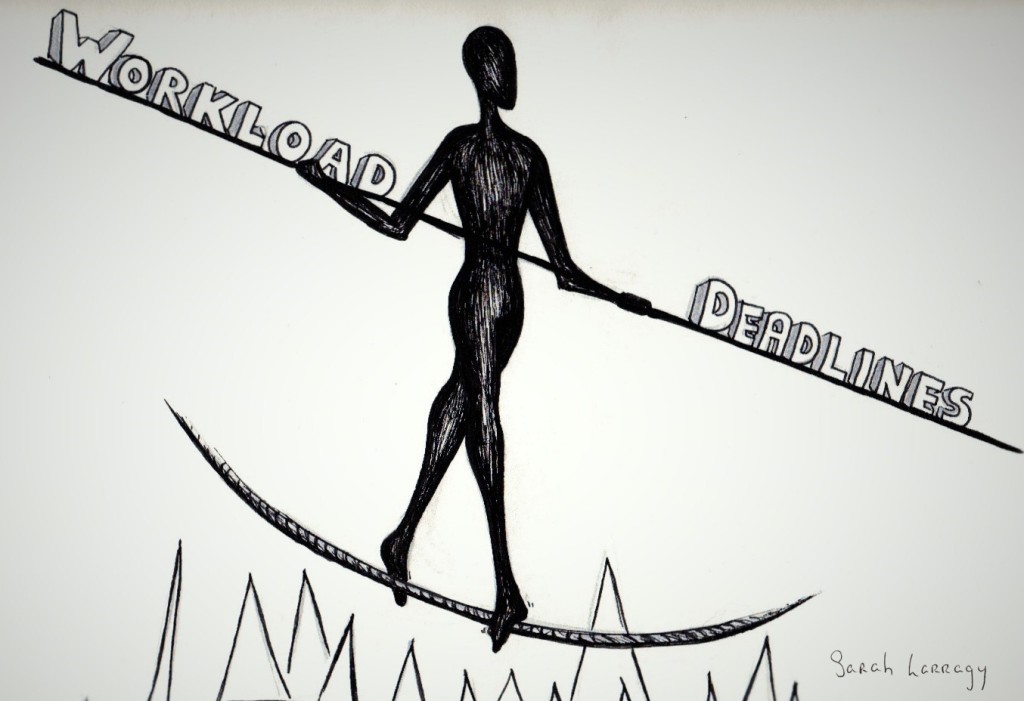
Doing a PhD takes its toll, even if you have a great supervisor and everything is going well in your personal life, the workload is extremely demanding, you’re constantly juggling your responsibilities and there seems like there’s never enough time (or energy) to get it all done.
No matter who you are, where or what you’re studying, two of the most common post-grad mental health issues are as follows:
- Imposter syndrome e.g. “I don’t deserve to be here”;
- PhD guilt (or anxiety) e.g. [on a Saturday] “I’m not doing enough”.
Imposter syndrome

Imposter syndrome is simply the belief that you are not good enough, the fact that you’ve made it to this point is a complete fluke and you will be caught out eventually. It’s a mixture of shame, sadness and, of course, fear. This self-doubt can be very debilitating, especially if things go wrong (which, in the scientific field, is pretty much inevitable). An experiment fails, or is messed up, and you immediately blame yourself, and so the downward imposter syndrome cycle continues spiralling.
‘Imposter syndrome’ is a term that was coined back in 1978 by Clance & Imes which was used to describe high-achieving women who struggled to internalise their success.2 They found to be particularly likely to affect students.
The below quote is a perfect description of how someone suffering with imposter syndrome can feel:
“Self-declared impostors fear that eventually some significant person will discover that they are indeed intellectual impostors. One women stated, “I was convinced that I would be discovered as a phony when I took my comprehensive doctoral examination. I thought the final test had come… I was shocked when my chairman told me that my answers were excellent and that my paper was one of the best he had seen in his entire career.” – Clance & Imes (1978)
As it turns out, this ‘phenomenon’, as it is sometimes described, is actually nothing of the sort and is incredibly common. Many famous, successful people have been known to experience this (Neil Armstrong, Emma Watson, Michelle Obama, Maya Angelou … the list goes on!). Ironically, even as I write this I am wondering ‘Do I feel like enough of an imposter to discuss this topic?’.
PhD guilt & anxiety
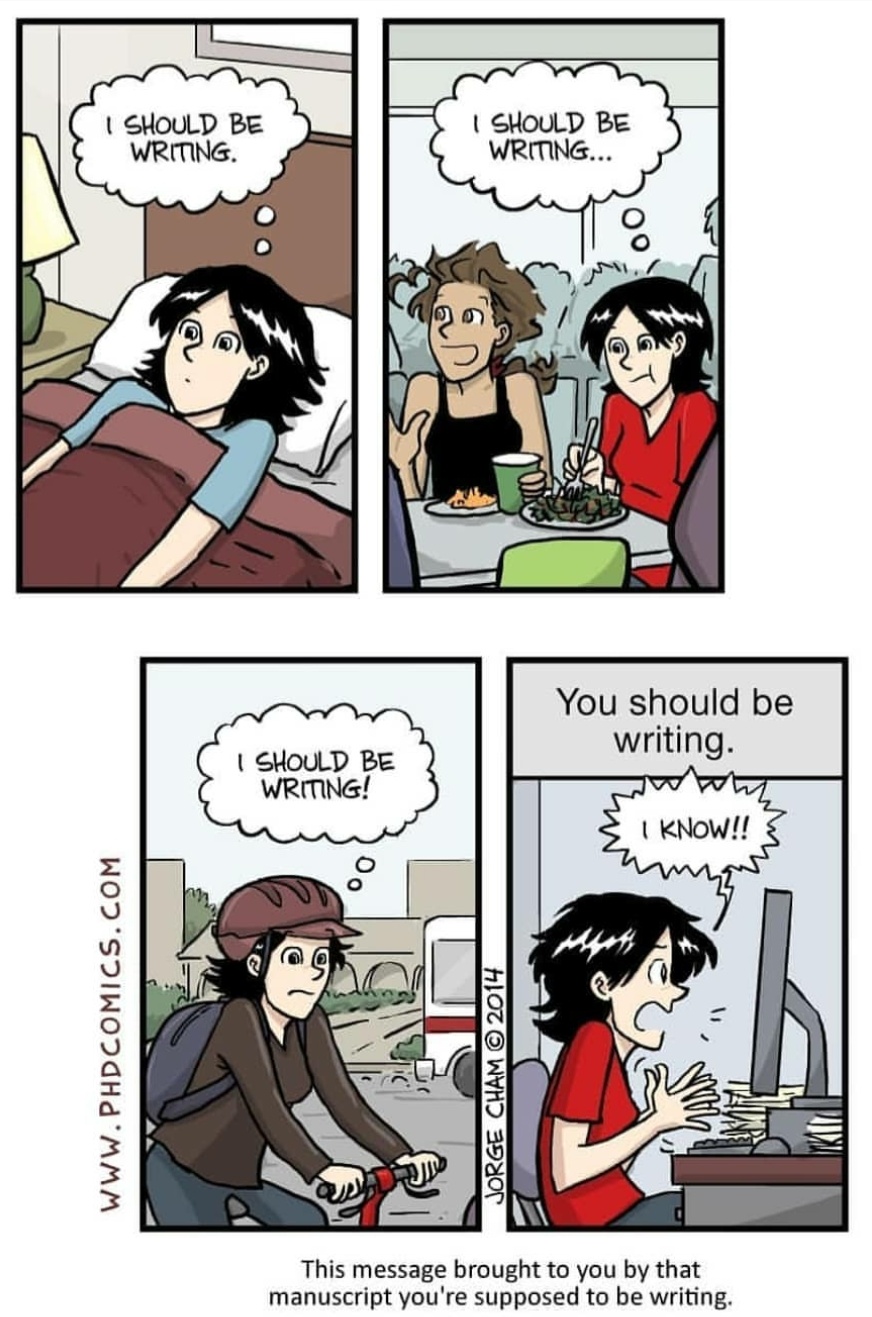
PhD anxiety permeates almost all your free time, both consciously and unconsciously. You feel bad for taking an evening or weekend off. In the back of your mind, there’s always that ever-growing list of things to do or a voice screaming at you to get back to work. Even now as I write this blog, that PhD guilt monster is shaking its head disapprovingly.
My PhD guilt/anxiety manifests in my dreams. These PhD-nightmares involve giant dog-sized queen bumblebees flying around my lab, growling at me as I try to pathetically fend them off with a tiny set of tweezers. I’ve dreamt about my parents coming into my lab while I was sleeping and thawing out all my DNA samples and throwing the degraded samples into the bin. Quite recently, I had one that Taylor Swift was registered as a PhD student in our lab and we were all very concerned about when she was going to stop touring and start writing up.
PhD guilt and anxiety might manifest in a variety of ways, but it’s important to recognise your own symptoms. Maybe you procrastinate doing the things that are hanging over your head, maybe you struggle to relax or can’t sleep, or maybe you overcompensate and work yourself into the ground.
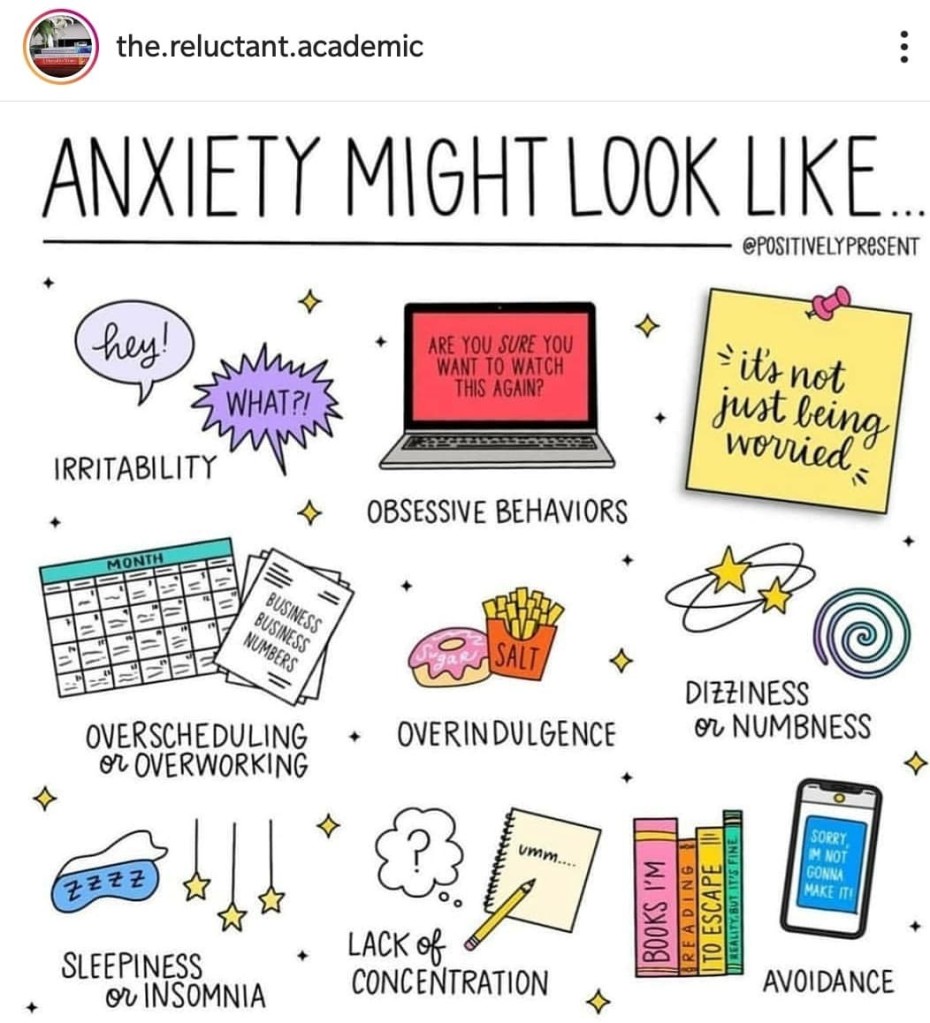
There are many great blogs on this topic if you want to read further.
10 mental health tips for a post-grad student
Although I am only a year into my PhD, I have experienced my fair share of the debilitating effects of imposter syndrome and the PhD guilt-anxiety combo. The below tips are things I have found help me and a number of other PhD students
- Exercise and eat healthily: I know, not the most welcome piece of advice when you are up to your eyes with work and stress. However, even if its only once a week or a 15 minute walk every so often, exercise can help lift your mood, boost energy levels and put things back into perspective when overwhelmed. And a good diet never hurt anyone either (though I am also a stern believer in ‘mental health’ food…)
- Face your demons. Whether you are terrified of public speaking or are dreading beginning to write up your thesis, ignoring these issues and the fears behind them will do you no good. The more you get used to doing the thing that scares you, the easier it gets. I can’t stress this enough – even if it scares the daylights out of you, DON’T AVOID IT. It only gives the anxiety and imposter syndrome more power.
- Accept mistakes and move on. We are all human, however frustrating that is. We ALL make ‘stupid’ mistakes – it is inevitable. Own up, apologise if necessary, but forgive yourself and move on. I came across a very funny and honest blog written by Prof Daniel Bolnick about some of the stand-out mistakes of his academic career.
- Laugh it off: I’ve only completed a year of my PhD studies, but the one failproof strategy I’ve found to deal with imposter syndrome is simply to laugh at it. Laugh about it with your fellow postgrads. Be honest about it. The secret is that everybody, at a point, feels like an imposter. If we think it ridiculous that our impressive colleagues doubt themselves and their ability, chances are they think it is ridiculous of you too.
- Celebrate all your achievements, however ‘small’ they seem. You managed to get out of bed when your first alarm goes? Finished a chapter of your thesis? Got good feedback off your supervisor? Be proud of all of the little wins along the way of your PhD journey. Make a list if you have to. This also goes for fellow post-grads – cheer on others and they will cheer you on too.
- Time management: This is different for everyone. Sometimes working from home is more productive than getting to college, especially if you have a long commute. Do what is most productive for you and make sure you prioritise the things that are most beneficial to your or your studies. There are also great smartphone apps that help keep you off your phone to focus on work e.g. ( OFFTIME, Forest, Digital Detox … ).
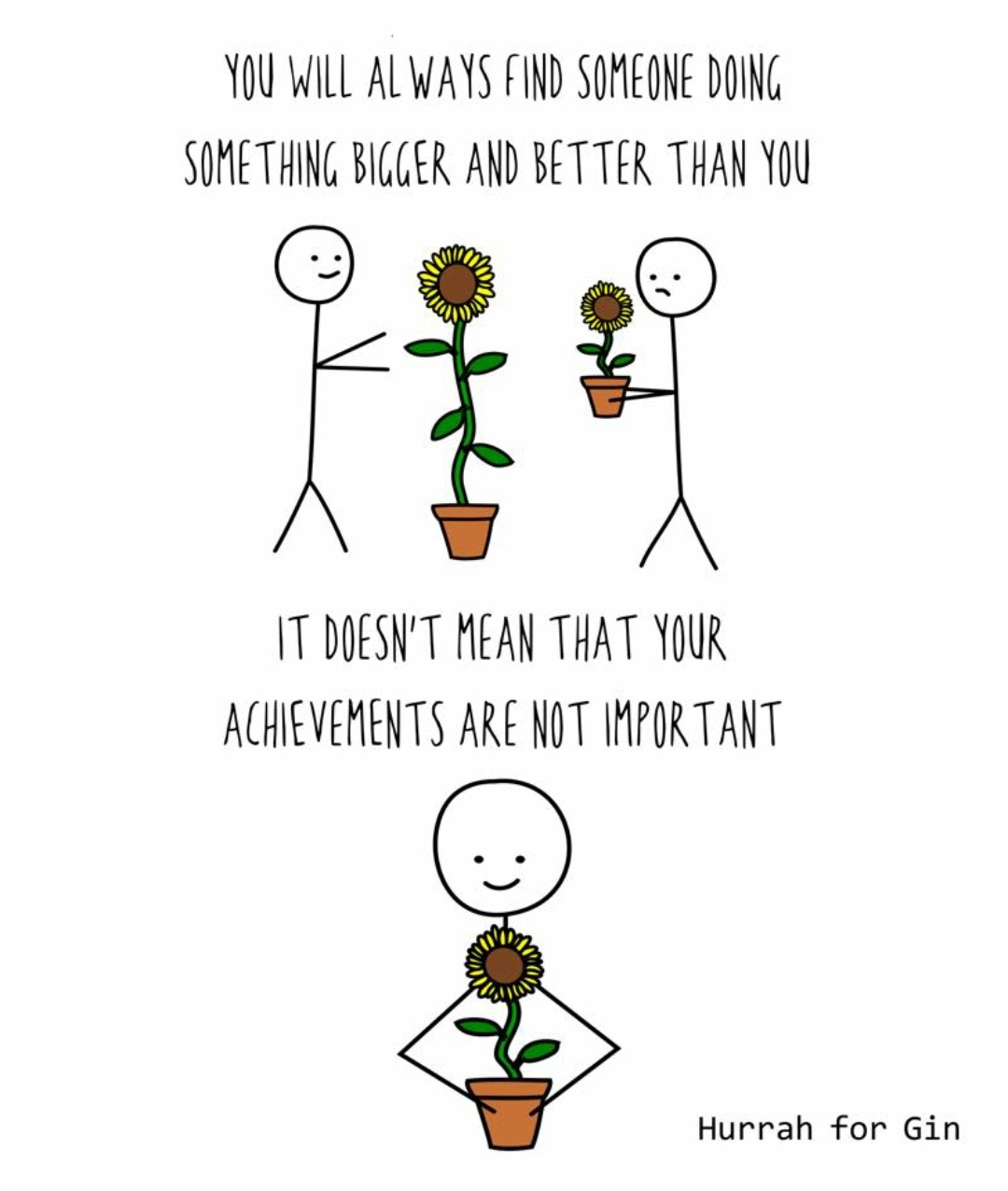
- Write absolutely everything down, keep track of references and label & date everything. You will not remember it later. Reference as you write – you will not be able to find that paper later. Learn to use referencing software early e.g. Mendeley, Endnote. Your future self will thank you profusely.
- Don’t compare yourself to other PhDs/labs. Everybody is on their own timeline, often in completely different research areas with their own professional and personal problems. Some people have 20 papers at the end of their PhD, others might have none. Remember – it’s not a race! Focus on your own work and your own milestones.
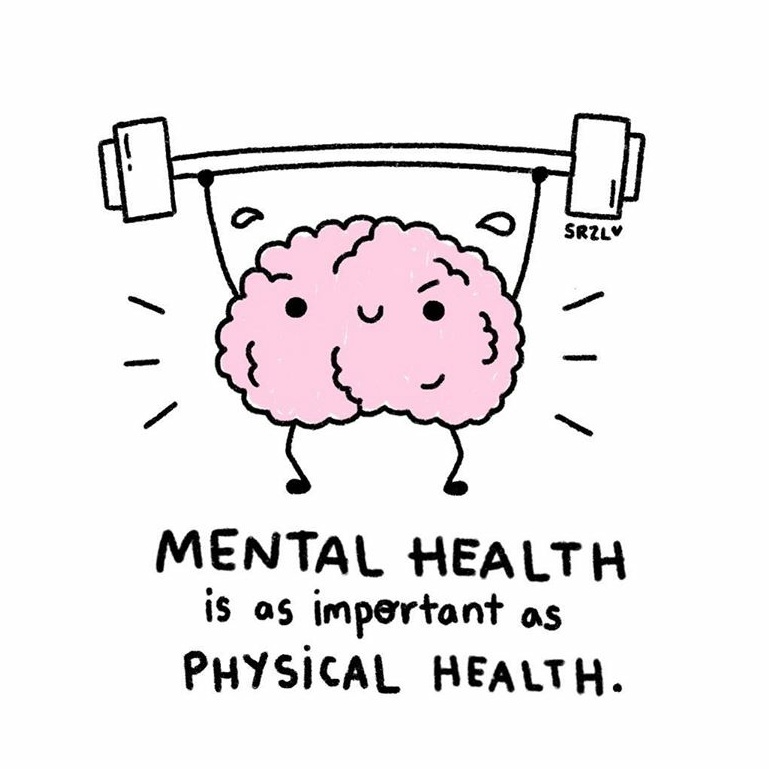
- Work-life balance: There will be times, perhaps most of the time, where your PhD becomes the end all be all in your life. That’s okay and sometimes completely necessary. But it’s only 3-4 years long, and like anything else, it will end, eventually, and life goes on after… Or so I’ve been told! So, go see your friends, spend time with family, read a non-academic book (gasp!), binge watch that show on Netflix. Book your holidayss and staycations. When you have to, work late, but take that time off later on. Looking after yourself and taking breaks is better than burning yourself out and running yourself into the ground. Perhaps easier said than done, but true nonetheless. Never apologise for doing what you must do to look after your mental health.
- Reach out: Never suffer in silence. Talk to your lab mates, fellow post grads, your supervisor, family, friends, even Twitter (#phdchat, #academictwitter, @PhDepression). Most universities (including Maynooth University) have free counselling services and workshops during the year. There is great support out there and you’re never alone.
Further resources
Blogs:
– Gradhacker
– Ph.D. Life
– Ph.D works
– Get a Life Ph.D
– Grad Resources
– the Grad Student Way
– PhD Comics
Podcasts:
– STEMculture
– 5 to Life: A PhD and Beyond
– Hello PhD
– Planet PhD
– PhDivas
– Recovering Academic
– PhD (in progress) Podcast
Apps:
– Tasks
– Trello
– Evernote
– Wunderlist
– Forest
– OFFTIME
– Digital detox
– Mendeley
Mental health:
– Mental Health Ireland
– Aware
– SpunOut
– HSE mental health resources
– Pieta house
– Niteline : 1800 793 793
– Irish Online Counselling
Contact us here and let us know if you found any of these tips useful or if there are any tips you have to help post-grad students keep on top of their stress & imposter syndrome!
References
- Levecque, K., Anseel, F., De Beuckelaer, A., Van der Heyden, J., & Gisle, L. (2017). Work organization and mental health problems in PhD students. Research Policy, 46(4), 868-879.
- Clance, P. R., & Imes, S. A. (1978). The imposter phenomenon in high achieving women: Dynamics and therapeutic intervention. Psychotherapy: Theory, Research & Practice, 15(3), 241.

I Cant even say how much i love this =)
Well done Sarah, excellent post *-* ❤
LikeLiked by 1 person